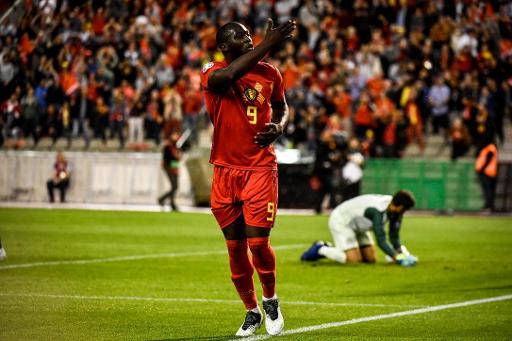When I first moved to the Rupelstreek, a cute but anonymous agglomeration of towns south of Antwerp, I joined a local football team. It was a mostly laid back group of guys looking to kick a ball around a couple times a week. There was little talk of winning in the group but we did excel at the 'third half', a Belgian tradition played in the cafe adjacent to every football facility in the country.
By the second week of competition we found out that our keeper had been kicked off the team for calling one of our Belgo-Moroccan teammates a 'Macaque'. I was quietly touched and impressed by the gesture, and it gave me a deeper sense of connection with my newly adopted home being of a mixed background myself. That's not to say that it's paradise, far from it.
Six kilometers south of my village is the town of Boom, the hometown of Romelu Lukaku, the indisputably greatest Belgian striker of all time. I love watching Romelu Lukaku play football, I love listening to him talk about football, and I am thrilled when he shares his opinions about the state of football. Not because what he says brings pleasure to my ears, but because he says what needs to be said when it needs to be said.
Last week he was treated to a chorus of monkey chants by fans at Cagliari in the run up to taking a penalty which secured victory for Inter Milan. Lukaku was not the first black player to be harassed at Cagliari and he wont be the last. His response was a long and eloquent post about the direction football fandom is taking with regards to racism.
His response showed poise and class, breaking a complex issue down without hate and anger, without admonishing a group of people or even individuals, instead focusing on people's behaviour and posing a question to football lovers about the future of our sport.
The next day Inter's ultras published a long rambling letter in response defending the actions of the Cagliari supporters (yes you read that right they defended monkey chanting instead of one of their own players), suggesting that racism in Matteo Salvini's Italy is not like it was in Northern European countries.
Romelu's younger brother Jordan also played in Italy at Lazio. I remember an interview with Jordan a couple years ago where he said that he felt that his brother was unfairly critiqued by the Belgian press. Every aspect of his personality and game coming under a microscope. Any perceived weakness in his game, such as his first touch, or on field personality like when he asks for the ball unabashedly and incesantly is critiqued ad nauseum. When he's good the press are magnanimous, what else could they be.
Romelu has been far and away the stand out in the two most important football matches for the red devils in the last 30 years: His two thunderous goals in a world cup qualifier against Croatia in 2013, and his astonishing performance against Brazil in 2018 displayed an intelligence few players have.
It remains to be seen if Romelu will be an Inter legend the same way he is a Belgian and Congolese one, and that might not be the point. The point is that Lukaku's mere presence brings it out of people, he forces us to ask serious questions on and off the pitch. As a youth player he forced LOSC Lille to reflect when they demanded to see his birth certificate ( where have we heard this before), putting his father Roger off and sending him to Anderlecht.
Now he's doing it again, forcing Italian football to take a look at itself. Rom will be fine, there's no doubt about it, but think of all the black players in Serie B who will have to suffer through the Cagliari ultras next year.
Alexandre D'hoore


